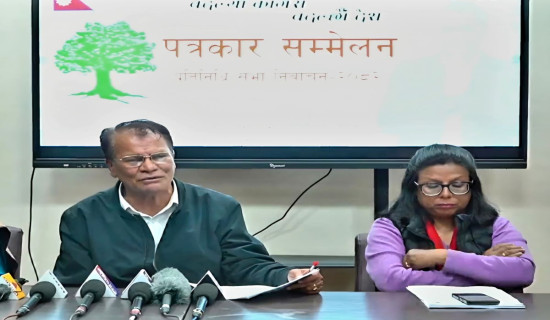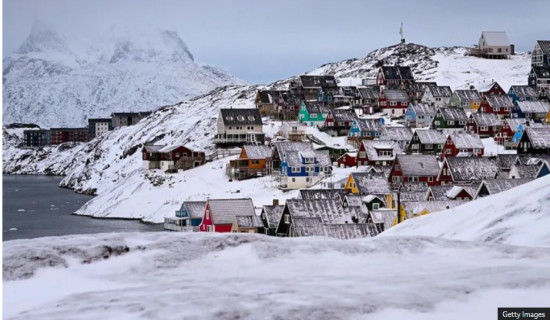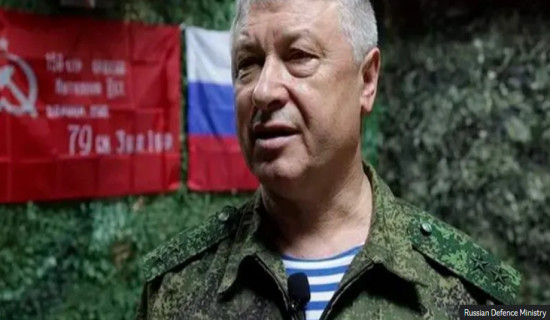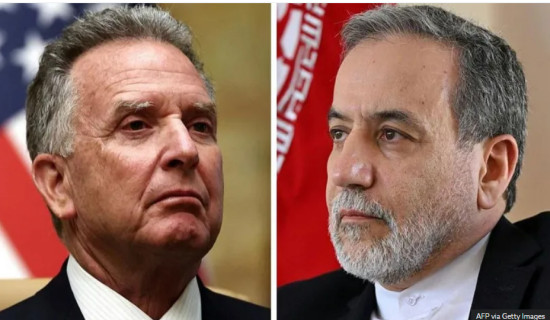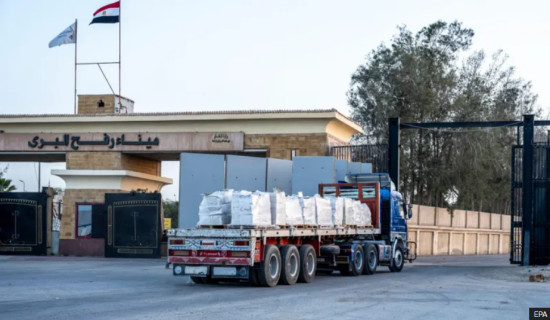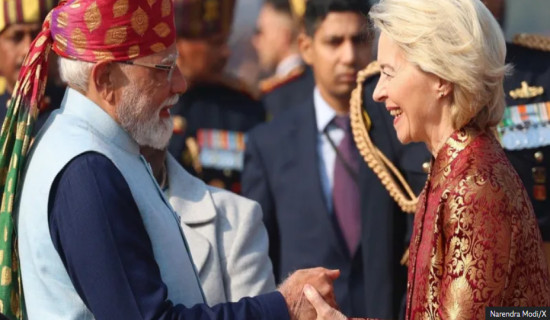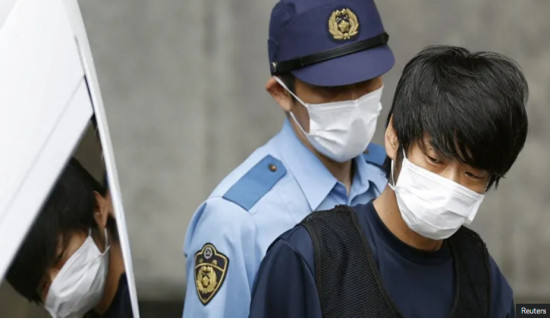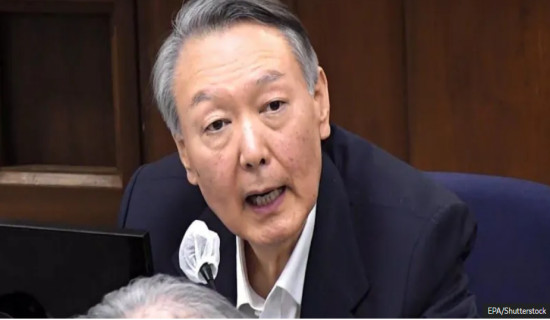- Monday, 23 February 2026
Obituary: Pervez Musharraf
Feb 5: The political career of Pervez Musharraf, Pakistan's most recent military ruler, was defined by its extremes.
After seizing power in a 1999 coup, Musharraf went on to survive numerous assassination attempts - finding himself on the front line of the struggle between militant Islam and the West.
Notably, he formed an alliance with the United States, claiming it helped him modernise Pakistan and improve the economy.
But by 2008, the career soldier had suffered defeat at the polls and was forced from office. His political career ultimately ended in disgrace and arrest: he was sentenced to death in absentia for treason in 2019.
He had been allowed to leave Pakistan in 2016 to receive medical treatment, meaning the sentence was unlikely ever to be carried out. But it was a humiliating first for the military, which has ruled the country for long spells.
In June 2022, following premature reports Musharraf had died in Dubai, his family announced there was little chance he would recover from multiple organ failure linked to a rare disease from which he suffered, amyloidosis.
Early years
Pervez Musharraf was born in Delhi on 11 August 1943, but his family joined millions of other Muslims in the newly created Pakistan, following the partition of India in 1947 after British rule ended.
He attended school in Karachi and Lahore before entering the Pakistan Military Academy in 1961.
He served in the Indo-Pakistani war of 1965 and in the second conflict between the countries five years later, by which time he was a company commander.
Musharraf rose to the top job in 1998 when Pakistan's army chief, Gen Jehangir Karamat, resigned two days after calling for the army to be given a key role in the country's decision-making process.
Many observers took the resignation as a sign that Prime Minister Nawaz Sharif's political power had become strong enough to secure the long-term
Pervez Musharraf
At a glance

BBC
1943: Born in Delhi, India
1961: Joins Pakistan Military Academy
1999: Leads bloodless coup and becomes president two years later
2007: Loses power
2008: Goes into self-imposed exile - returns from 2013 to 2016
2014: Charged with high treason
Source: BBC
In October 1999, Prime Minister Sharif attempted to dismiss Musharraf from his position, but the move was opposed by senior army officers.
Musharraf, who was out of the country at the time, quickly returned to Pakistan and seized power in a bloodless coup - taking the title of chief executive.
Pakistan's then President Rafiq Tarar remained in office until June 2001 when Musharraf formally appointed himself as his replacement.
Any thoughts his takeover might herald a stabilisation in ties with neighbouring India - or even a new start - were dashed early in his rule.
There was optimism when he visited India for a landmark summit in July 2001, holding talks with Prime Minister Atal Behari Vajpayee and also fitting in a photo opportunity with a visit to the Musharraf family's ancestral home in Delhi.
But hope waned and the talks ended without agreement - the long-running dispute over Kashmir was seen as the main reason for the deadlock. India regarded Musharraf as the architect of the 1999 conflict in Kargil, and suspected Pakistan's army of involvement in the hijack of an Indian Airlines plane to Afghanistan the same year.
Crackdown on extremism
As Pakistan's leader, Musharraf had to deal with the fallout for his own country from the 11 September 2001 attacks by Islamist militants on targets in the United States.
The blunt message from the administration of then US President George W Bush was, "You are either with us or against us." So Musharraf made a controversial U-turn on Pakistani policy: supporting the American-led military campaign to oust the Taliban regime in neighbouring Afghanistan, who had harboured Muslim radicals blamed for the attacks.
In January 2002, he issued a strong condemnation of extremism, pledging to fight Islamist terrorism in Pakistan. He also banned all foreign funding of mosques and Islamic education centres and limited the number of foreign students coming to Pakistan for Islamic studies.

AFP, Pakistan became a key ally of US President George W Bush's "war on terror"
The new president also found himself under increasing pressure to hold democratic elections and restore civilian rule.
In October 2002, a pro-Musharraf coalition won the majority of parliamentary seats, although the opposition effectively blocked any proceedings in the National Assembly for more than 12 months.
Two years later, he struck a deal with a coalition of Islamic parties that saw a measure passed which legitimised his 1999 coup and allowed him to remain in the army and retain the title of president.
Turning around the decline in economic growth was part of President Musharraf's promise on assuming power and his reforms were generally praised by international institutions.
Musharraf had to cope with a humanitarian tragedy in October 2005, when a massive earthquake hit Pakistan-administered Kashmir, killing more than 73,000 people and making more than three million homeless.
The pressure on his rule increased in 2007 following his decision to suspend the Chief Justice, Iftikhar Muhammad Chaudhry, accusing him of corruption.
A huge protest by the country's lawyers saw the Supreme Court eventually reinstate the chief justice and dismiss all allegations of misconduct.

GETTY IMAGES, The president was seen as walking a tightrope between the US and anti-American Islamists
In July 2007, the army laid siege to the Red Mosque in Islamabad, whose religious leaders and students had regularly condemned Musharraf's pro-Western policy.
Armed students battled with soldiers for days, before the building was raided in a military operation in which more than 100 people were killed.
In November of that year, Musharraf made what would turn out to be a fateful decision - he imposed a state of emergency.
His attempt to suspend the constitution and replace Chief Justice Iftikhar Chaudhry came a month after a disputed election that had seen him return as president. But the imposing emergency rule also set him at odds with both the opposition and some of his key international partners - and his popularity sank.
Fall from power
But it was the shocking assassination of another former prime minister, Benazir Bhutto, by a suicide bomber in December 2007, that did more than anything else to undermine Musharraf's claims that Pakistan's future was secure in his hands.
Following elections in early 2008, Bhutto's resurgent Pakistan People's Party swept to power at the head of a governing coalition that included the party of Nawaz Sharif, whom Musharraf had deposed in 1999. They began moves to force the president to resign and to begin a process of impeachment.
On 18 August 2008, Musharraf announced his resignation in a long speech, during which he defended the decisions he had taken.

AFP, Musharraf was a divisive figure in Pakistani politics
He retired to what seemed to be a quiet life in London and Dubai but made no secret of his wish to return.
The former general eventually travelled to Pakistan in March 2013 to take part in elections but was barred from standing by the government of Nawaz Sharif, then back in power as prime minister, and his All Pakistan Muslim League (APML) performed badly.
Musharraf then became quickly embroiled in a slew of investigations, including one for treason relating to his imposition of the 2007 state of emergency.
The accusations led to years of legal wrangling in the country's highest courts.
In 2016, after a travel ban had been lifted for medical reasons, Musharraf left the country again.
It took more than three years for the judges in the treason case to hand down their shock ruling: Musharraf was guilty and was sentenced to death.

AFP, Musharraf's trial was held in a closed session in an Islamabad anti-terrorism court
But with Musharraf in self-imposed exile in Dubai, there was little chance of such a sentence ever being carried out.
In a video statement from a hospital bed, he said he was too sick to travel to Pakistan.
Then in another twist, a month after the sentence was delivered, the entire process was declared unconstitutional by Lahore's high court.
It threw doubt on the legitimacy of the verdict, but it wasn't clear if it automatically nullified his death sentence.
After Musharraf's family announced in June 2022 that his organs were malfunctioning, there were calls for him to be allowed to return to die in peace at home in Pakistan. The army made clear it would support the family if that was what they wanted.
But many others called for the former military chief to be arrested on return and insisted he be made to answer for his crimes.

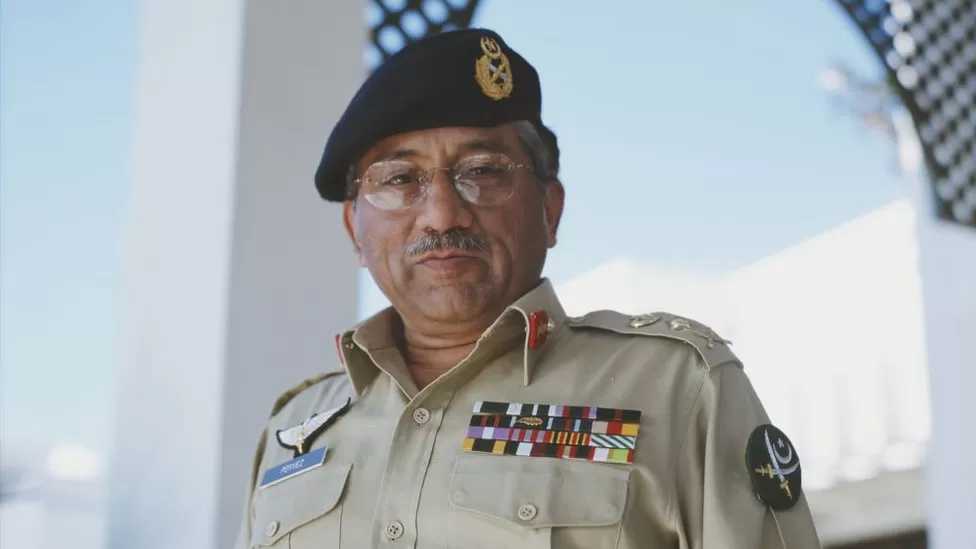

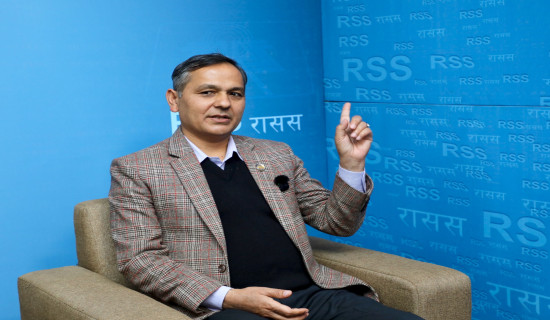
-square-thumb.jpg)
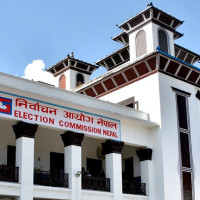
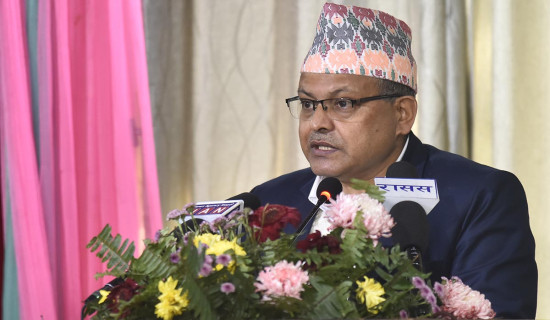
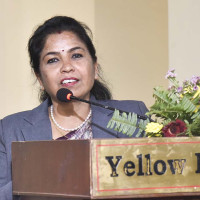
-square-thumb.jpg)
